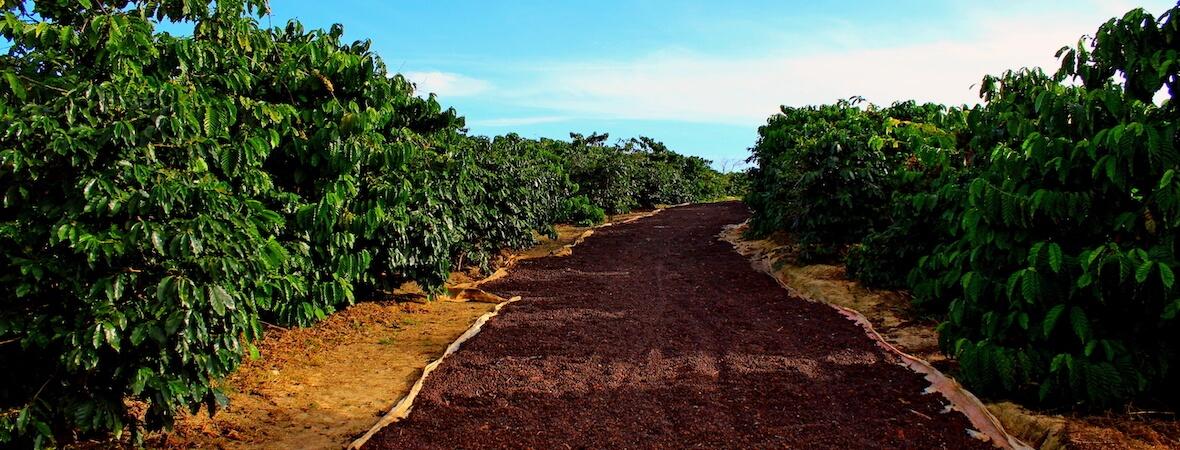Much care and attention goes into producing each micro-lot and they are all named after significant years in the farm’s history.
2003 was the year Nanete Pellicer won the Brazilian's Cup of Excellence for her microlot, which she tended to alongside teaching at a local rural school, having also a son named Carlos, and a granddaughter named Ana Luiza.
Mió is a coffee farm in Monte Santo de Minas, Brazil, that exports, imports, stores, and sells coffee. Coffee harvested with care by Mió workers.
The farm spans a total of 1,589 hectares. A third of the land is used for the coffee processing and milling facilities, some pasture areas and the plantation of eucalyptus trees, which is home to some lovely bees. The rest of the land is equally divided between the coffee trees and the native forest reserve. With plenty of spring water in the estate, one of Mió’s responsibilities is to not only maintain the water flow but to also improve water quality.
Dedicating the same amount of land to the coffee as to the native forest helps preserve the natural characteristics of the area. The farm is located between Southern Minas Gerais and the High Mogiana region. Two distinct terrains, one bringing a citric acidity, the other a full body and sweetness to Mió’s coffee.
We pride ourselves on a 100% traceability guarantee for the entire crop every year. Each stage of the journey, from where the cherries were harvested, which trucks moved them, how and when they were processed, is tracked using satellite imagery. Being a technology-driven farm improves the farmworkers’ quality of life, ensures an abundant harvest and guarantees the highest processing standards for the crop.
Our state-of-the-art processing facilities include: a wet-mill, concrete patios, raised beds, ambient-air drying rotating machines, wood silos, cross-beater hullers and a density separator. The beans are then sorted further according to size and colour using an oscillating screen and optical-electronic system.
What is a Peaberry & How Does it Form?
Inside a regular a regular coffee cherry with no defects, you’re expected to find two seeds, with their flat fronts facing inwards, and their round backs facing outwards. The seeds of the coffee cherry are what is removed, processed, and roasted for all to enjoy.
Peaberries are estimated to make up to around 5–10% of a harvest. They occur as a result of a natural mutation, or defect, inside a coffee cherry, where one ovule fails to pollinate. This results in extra space for the single developing seed. Within this space, a larger and rounder seed grows inside. This is a peaberry.
Peaberries, sometimes considered as the superior coffee bean can offer more acidity and complexity in the cup. This coffee from Mio certainly doesn’t disappoint!
Processing Station: Mió

